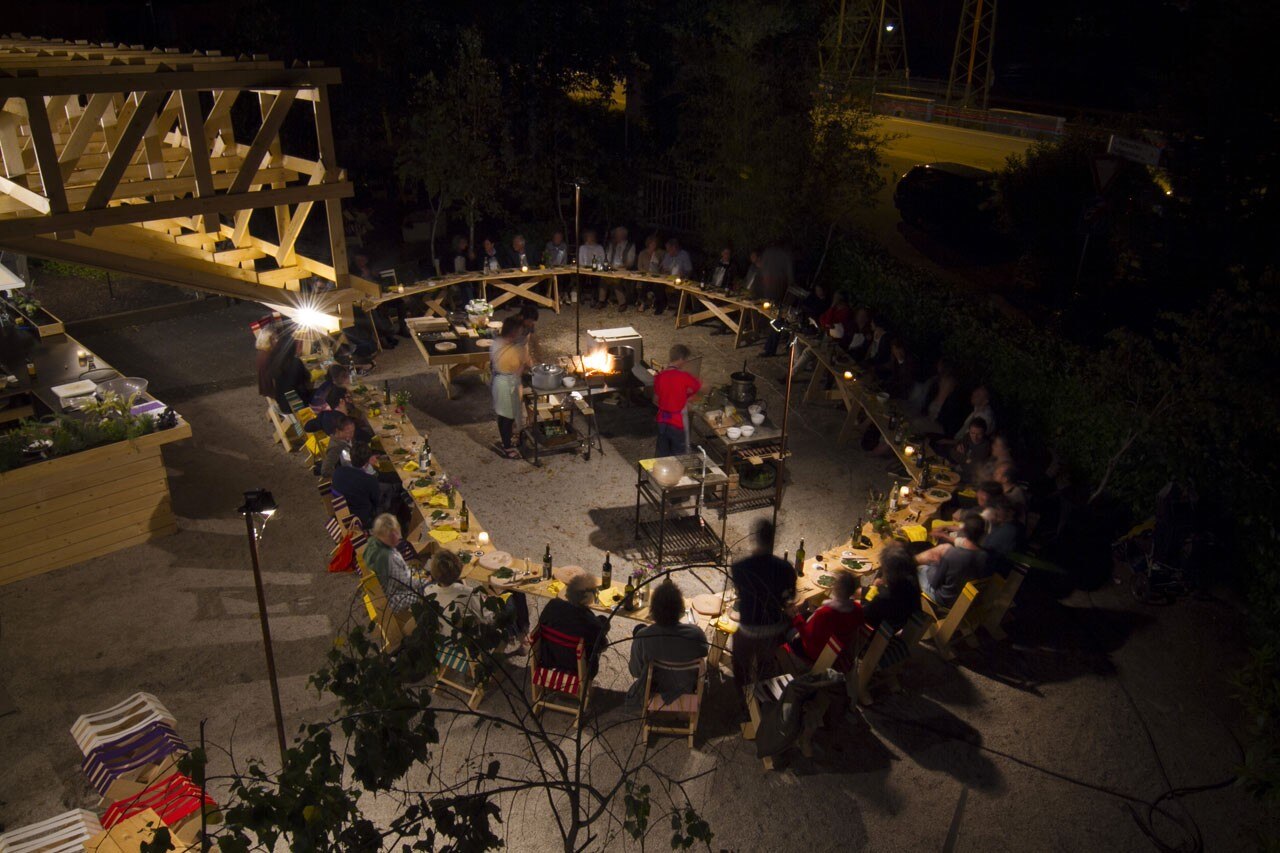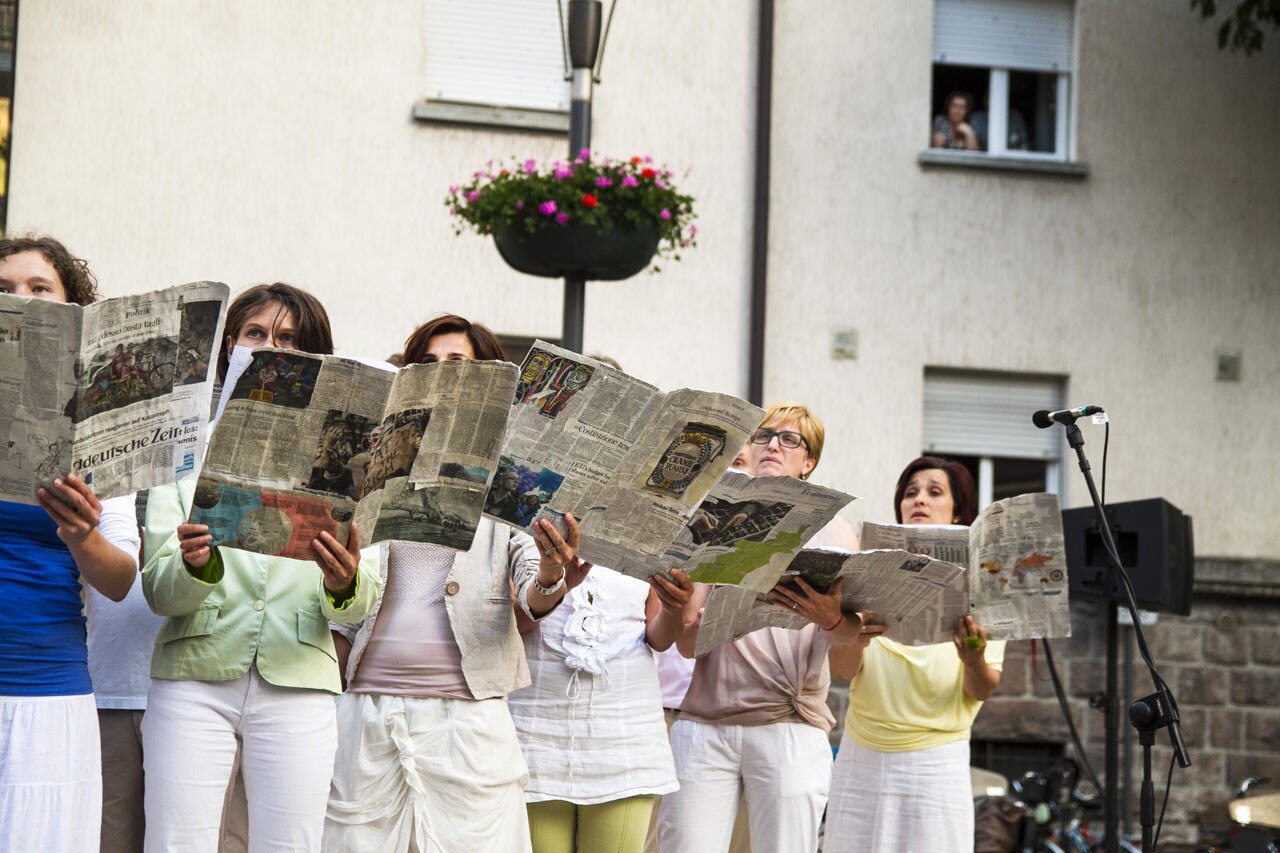After ten years of intense and passionate work, the Lungomare project and exhibition space celebrated its anniversary in Bolzano with a special month-long string of events. Under the name of Gasthaus, they organised a series of round tables, activities and group design projects on the outskirts of the city in a landscape tinged with forest green and gurgling brooks.
Gasthaus was the brainchild of Angelika Burtscher, Daniele Lupo and Lisa Mazza, the founders of Lungomare. Joint curators Filipa Ramos and Luigi Coppola were asked to explore the themes and approaches that Lungomare has been developing over the years — to correlate them with other international models, and experiment with their communicative potential. We spent the first days of the opening with them, staying in a wooden construction by constructLab and EXYZT. With an open kitchen and a common room based on the model of a seaside theatre, it hosted performances, debates, projections and more. It was an opportunity to experience a full immersion into the character of this institution, which is geographically far away from well-known centres, yet close in approach, attitude and line of thought to instances that have taken the territory as the key to new ways of understanding, developing and sharing forms of language and knowledge.
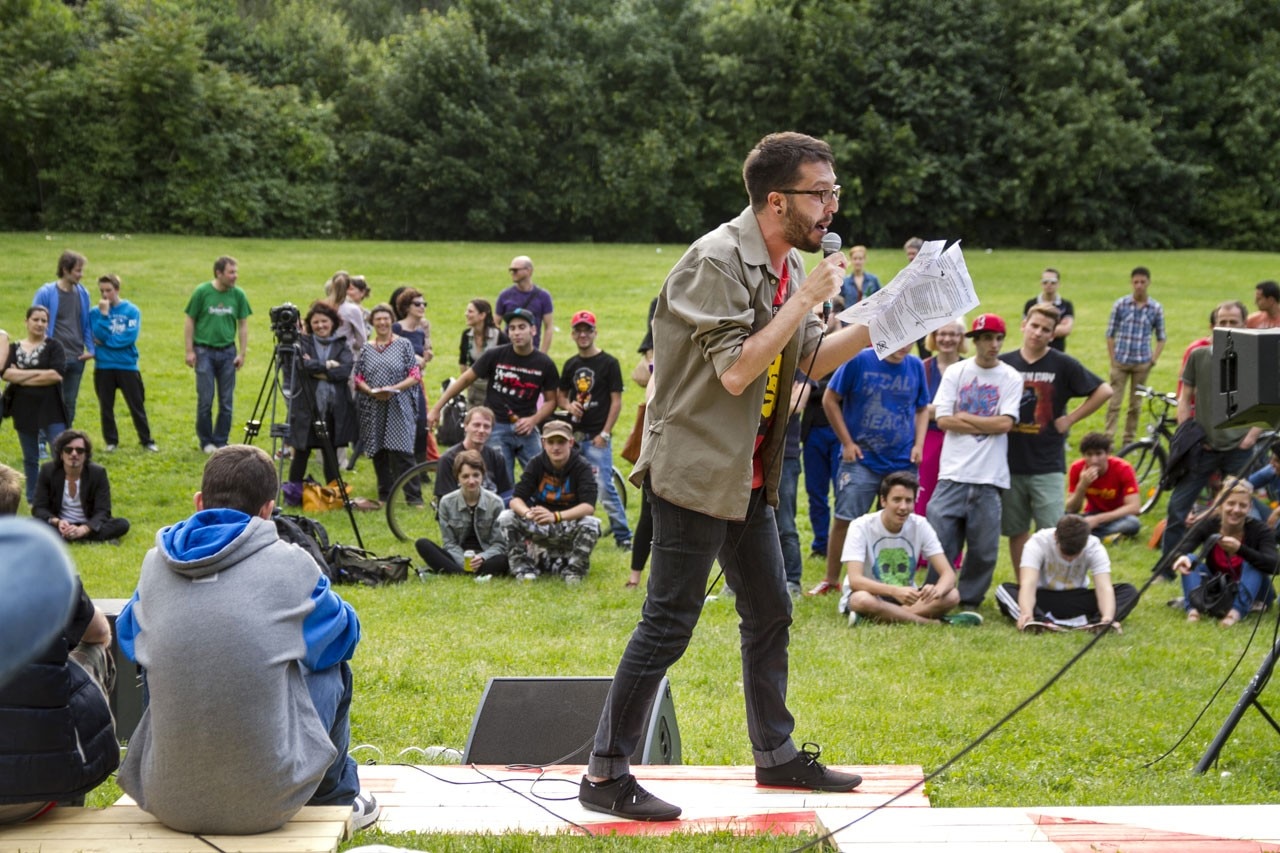
Martina Angelotti: Lungomare’s tenth anniversary is an occasion to take stock of the activities that your space has been working on for quite some time now in Bolzano. It is also an opportunity to reflect upon the concept of public space as a common good and an awareness-promoting opportunity for the citizens. How does this thread relate to your decade-old office and how has it changed over the years?
Lungomare: For the Gasthaus project, we took the city of Bolzano as a departure point for ideas on urban development. We also wanted to think constructively about how we interpret and apply the concepts of democracy and public action in our lives today. One example is the workshop “Where the Things are Wild”, led by Roberto Gigliotti and Jonathan Pierini of Osservatorio Urbano, an initiative for temporary studies that Lungomare began in 2005. The workshop was a survey of the spaces used for communication in the city of Bolzano, looking especially at the grey area where real information points meet the metaphorical kind. We wanted to experiment with ways to produce interaction by means of reciprocal influence. The activities and events at Lungomare are not for experts only, but aim to involve and address a broad public. Osservatorio Urbano responds to this intention by stimulating wide-ranging observation of a city without the use of design tools such as urban planning. The models with which to read a city are open and flexible. They turn imperfections into original qualities and lead to a blurred picture of the city that allows for emotivity and personal interpretation. The work done by Lungomare attempts to examine critically certainties and uncertainties arising in our daily lives and the places we inhabit every day. The themes are the same ones that constitute the Gasthaus programme, for which over 50 people collaborated on the creation of a convivial meeting place for debate and exchange.
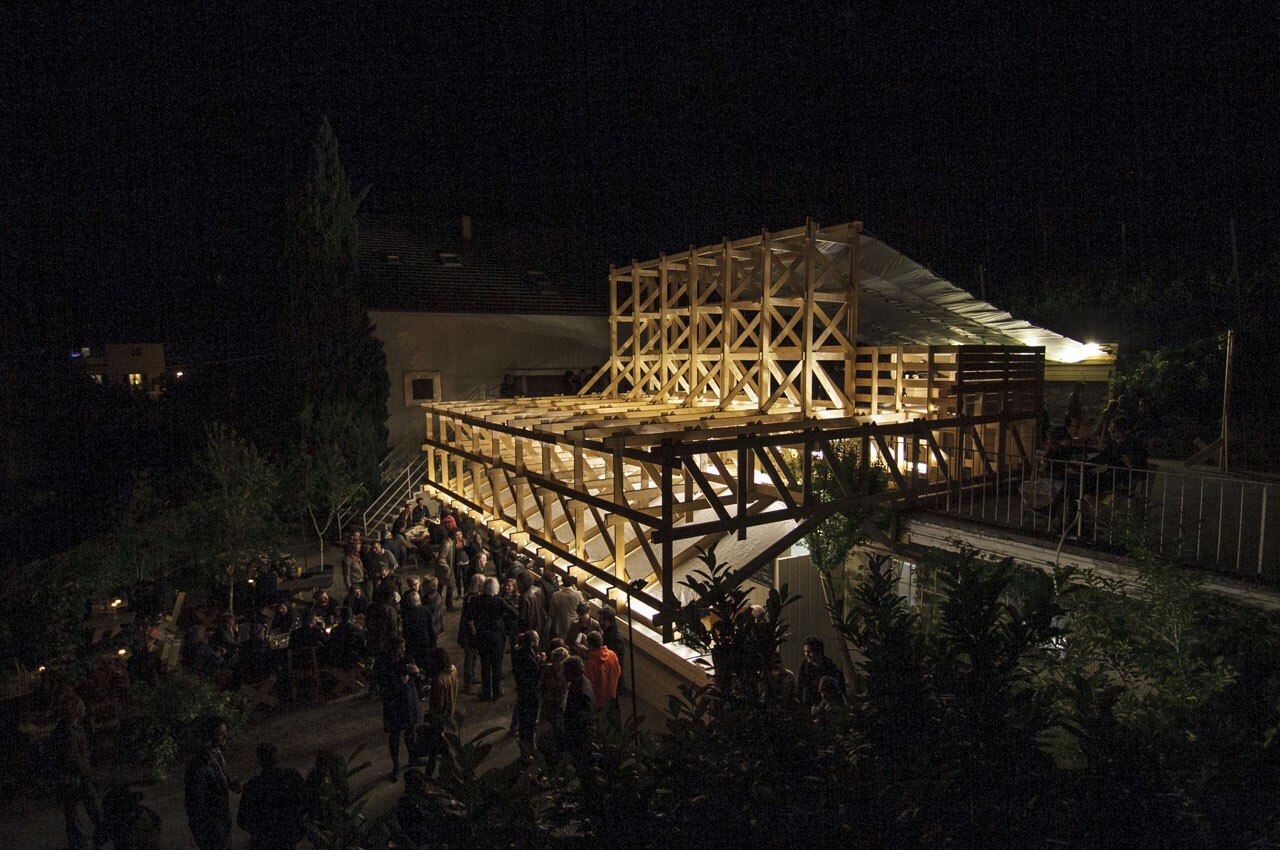
Martina Angelotti: Gasthaus, time and place. What kind of time and place? How did they evolve and transform?
Lungomare: As for place, Gasthaus is not unique, not fixed, not stable. As for time, Gasthaus has no beginning or end. It's a place where we can establish a specific relationship with the surroundings, one that is rooted in the context for which the place was conceived. Viewpoints converge from outside and from inside; they overlap toward the creation of depth, making us discover a choral dimension and helping us to maintain the right critical distance. The place is not unique because it is compared to other places, leading to an exchange of considerations and sensations, and also operational strategies and reflections on where we are headed. Lungomare Gasthaus aims to be an opportunity for thought, a chance to analyse our present and its future developments, in cultural, social and political terms, with the current conditions of cultural production. Marzia Migliora devised a project for Lungomare called Con la cultura non si mangia ["With culture we don't eat"] as a debate opener. A make-believe Parliament sits at a decked table, symbolizing an open discussion where the viewpoints of opposing sides alternate. A number of ceramic plates have twelve quotes written on them, taken from speeches by Italian politicians on the subject of culture. In this way, the dining companions of the Gasthaus are stimulated to adopt a stance and formulate their ideas pertaining to the different ways we can manifest individual involvement when it comes to the development of culture and education.
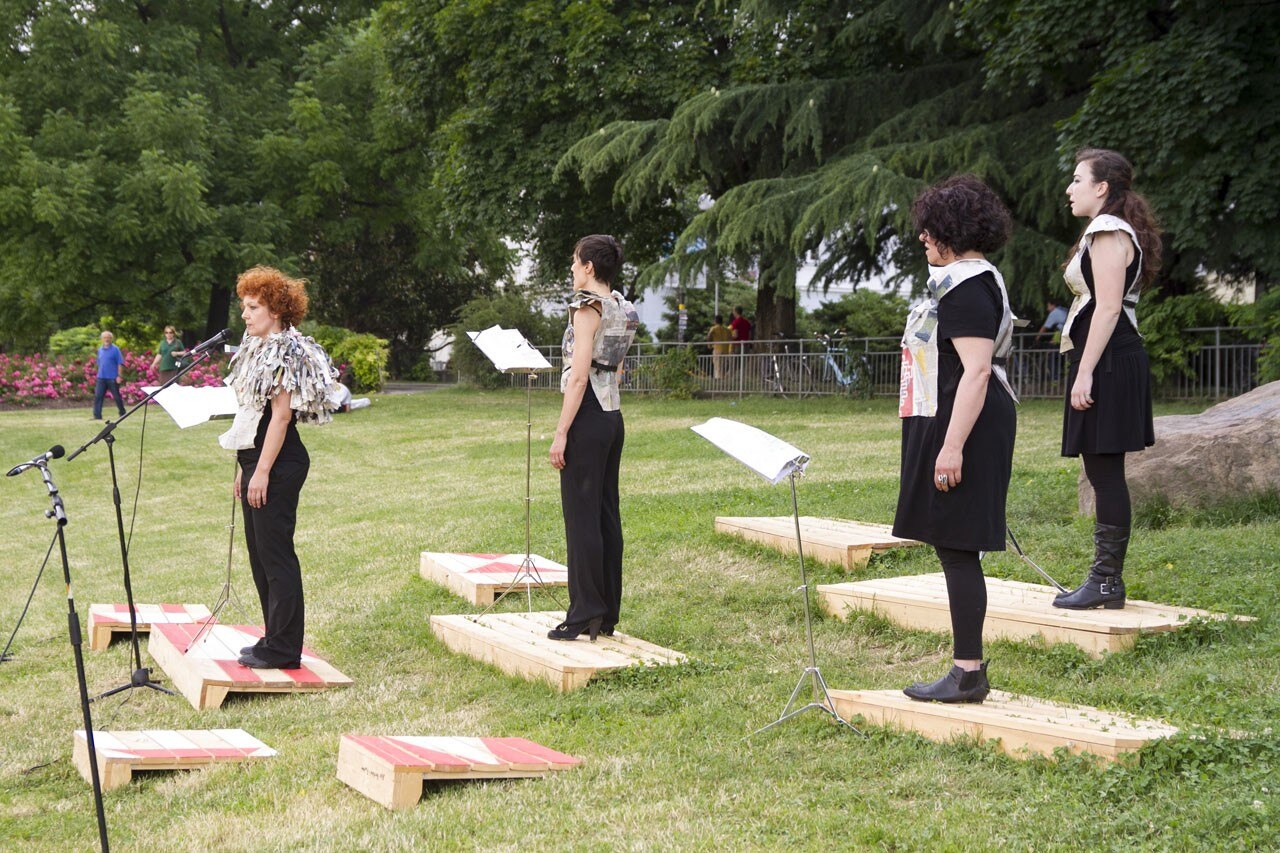
Martina Angelotti: For your celebration you invited artist Luigi Coppola and curator Filipa Ramos to help you round out the train of thought running through the two opposing sides. What were the departure points that inspired you to expound certain questions that are important to Lungomare?
Lungomare: From the very first ideas for the project, we had the desire to create a format that was not self-celebratory, but that would give us the possibility to put to the test questions and themes that arise in our practices as curators and designers. The relations with social and geographic circumstances, cultural production and a multidisciplinary approach to design are the elements that our projects from the past ten years have in common. The Gasthaus project is in line with our consideration of the trans-disciplinary possibilities of design, architecture, urban planning, art and theory. Most of the curators, artists and designers who were invited to the Lungomare Gasthaus developed new work, in tight dialogue with the curators of the event. The temporary structure that we used was built in timber by the constructLab — EXYZT collective was inspired by the ruins of a seaside theatre. The bottom part features the open kitchen of the trattoria, and on top there is a multifunctional stage.
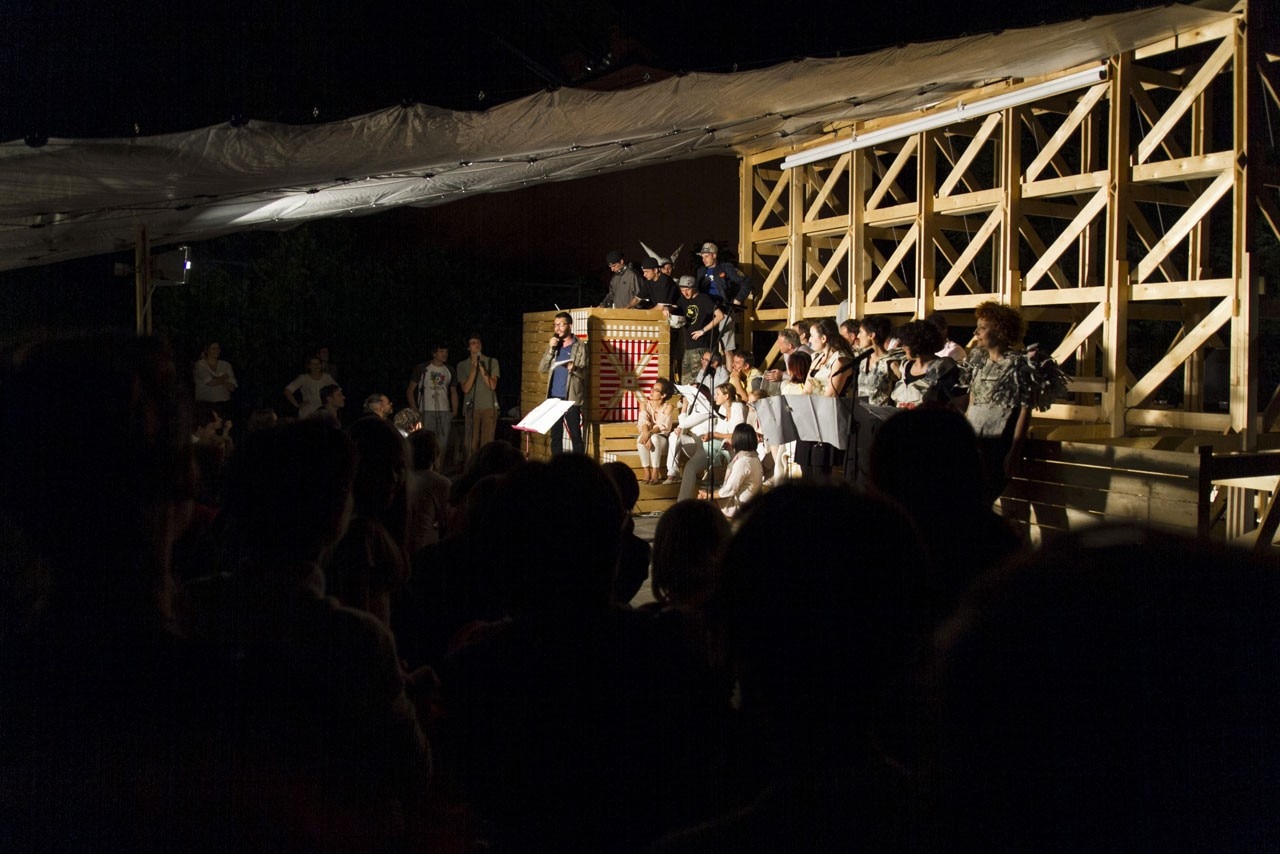
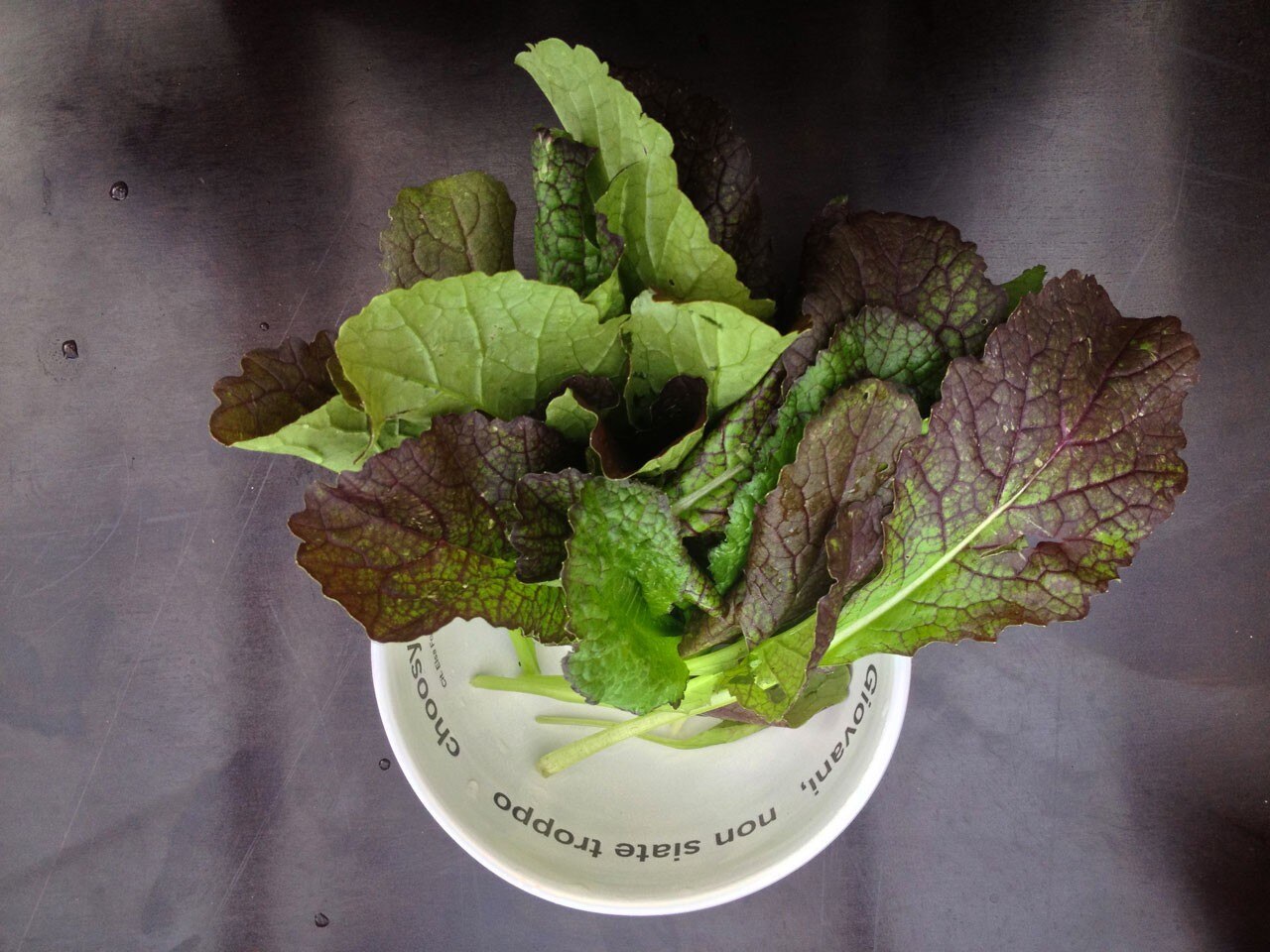
Martina Angelotti: What was Luigi Coppola's contribution to these considerations?
Gasthaus: “Masses & Motets: Esercizi di coralità politica”, which was comprised of three musical performances about resistance to the “society of the spectacle” and consumerism — evidence, proposals and political vision. The performances were staged in different public spots in the city, culminating at the Gasthaus in a collective happening that involved all participants from different musical genres and performance arts. We had hip hop, performance literature, polyphonic singing, theatre, poetry slams, light music and experimental music. “Masses & Motets” is the result of intense collaboration with the composer Marcello Fera and the dramatist Ina Tartler. In line with the Lungomare philosophy, also this project uses urban space first and foremost as a place for action and enquiry.
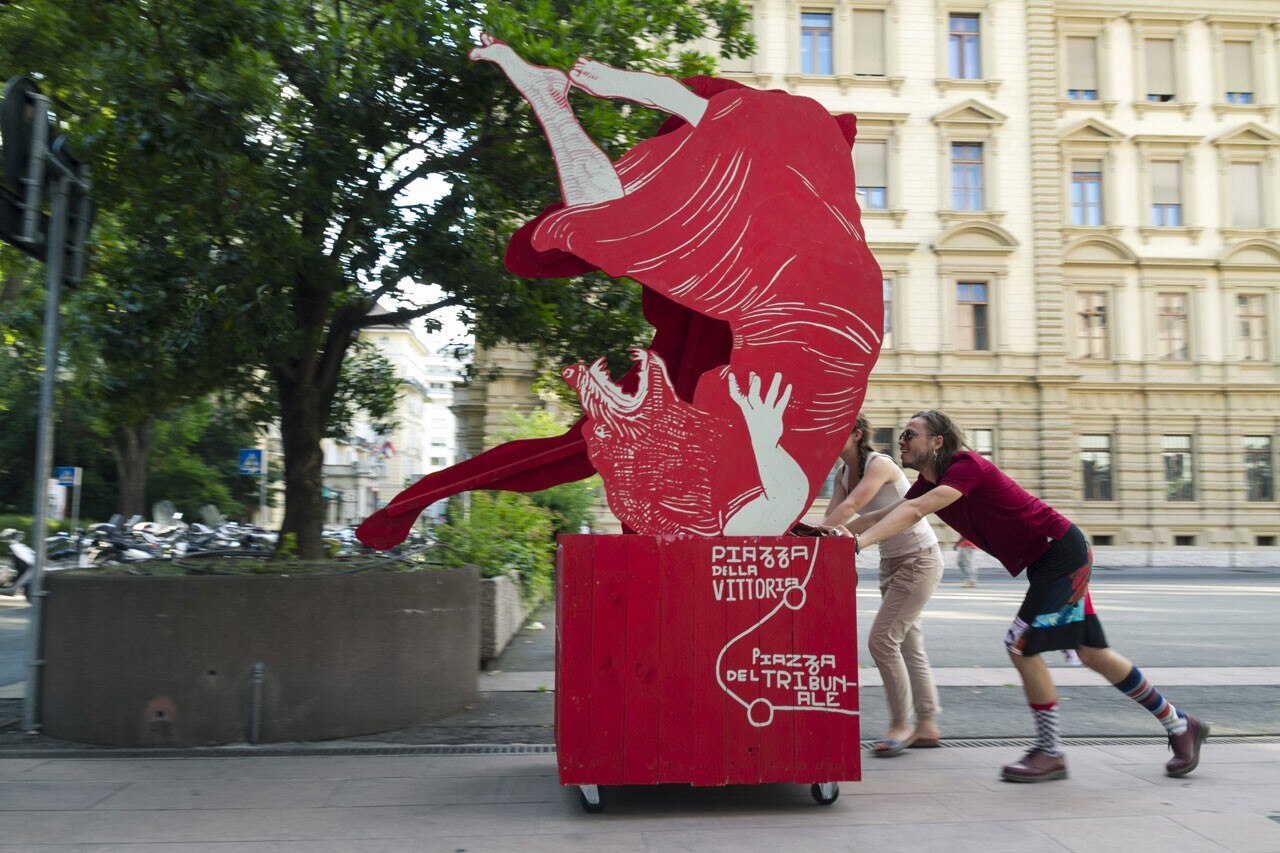
Martina Angelotti: Lungomare Gasthaus has great value for the community, in artistic, cultural and socialising ways. How can the space of art become a space where knowledge is shared?
Lungomare: We believe that art, design, architecture and culture in general have the task of stimulating us to reflect upon the reality surrounding us, and to look critically at knowledge that we sometimes accept all too readily as established truths. We are not interested in doing this behind closed doors, alone among ourselves, but rather in a collective thought process. In this sense, sharing is at the base of the interaction in every project. The Lungomare practice is characterised by continuous study, alternatively looking from the inside out and from the outside in. The project space in itself is an attempt to activate a communal place, and the Gasthaus initiative accentuates this even more explicitly, wanting to give space to the production of choral, polyphonic knowledge. It's a free zone where we can invent new possibilities, even in the form of far-fetched or utopian visions. The formula is defined in a new and different way each time.
